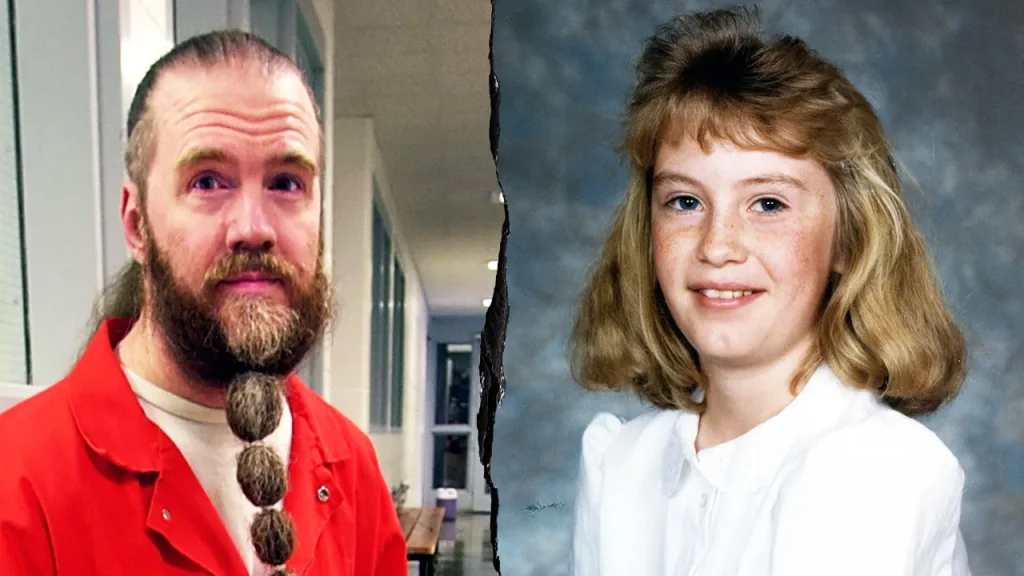Finding Peace After Darkness: Rebecca Lafferty’s Journey to Forgiveness
Rebecca Lafferty grew up carrying a burden few could imagine—being the daughter of Dan Lafferty, a man convicted of a horrific double murder that shocked the nation in 1984. In her new memoir, “The Lafferty Girl: Surviving Trauma, Abuse, and My Father’s Crime,” she reveals her path from shame and trauma to healing and peace. Her story isn’t about excusing the inexcusable, but about finding freedom from the prison of her past. The murders of Brenda Lafferty and her 15-month-old daughter Erica—committed by Rebecca’s father Dan and her uncle Ron Lafferty—were so notorious they inspired Jon Krakauer’s bestselling book “Under the Banner of Heaven” and a subsequent Hulu series. Throughout her memoir, Rebecca honors the memory of these victims, writing poignantly, “Brenda and Erica, we love and miss you always.”
Rebecca’s childhood was marked by strict isolation and abuse. As a toddler, her father subjected her to punishment he believed was divinely ordained to “kill her spirit,” leaving her perpetually anxious and fearful of adult anger. Her father had immersed himself in religious fundamentalism, eventually being excommunicated from the Church for pursuing outlawed practices like plural marriage. He and his brother Ron shared increasingly radical beliefs, culminating in Ron claiming to receive a “revelation from God” commanding the murders because Brenda resisted their polygamous beliefs. By third grade, Rebecca sensed something was terribly wrong—schoolmates whispered about her “secret,” one calling her father a “baby killer.” It wasn’t until she was twelve that her mother finally revealed the devastating truth about her father’s crimes. “It just broke my heart that my dad would do something so evil,” Rebecca recalls. “What does this mean about me? I was fundamentally flawed. Nobody was ever going to love me or want to be around me.”
The shame of her father’s crimes followed Rebecca everywhere in the small community where everyone knew who she was despite her mother’s attempt to change their last name. She internalized the judgment she felt from others, believing herself to be “the evil one in town” as friends’ parents warned their children away from “that Lafferty girl.” This profound sense of unworthiness infiltrated every aspect of her life. “I carried this self-loathing with me throughout my life and into every relationship I entered,” she writes. “As a result, I wasn’t capable of loving another person or finding a healthy partnership until I first learned to love and forgive myself and those who had hurt me.” The path to healing began when she met a therapist who simply listened without judgment. “I felt seen by her. I didn’t feel like she was judging me. I felt her listening with her heart, and I trusted her,” Rebecca explains. Through these therapeutic sessions, she began reconnecting with parts of herself she had long suppressed.
In 2006, Rebecca took the courageous step of confronting her past directly by visiting her father in prison. “I was so scared. It was terrifying just to even go into the prison because of the way they treat you and talk to you,” she remembers. “And then sitting in front of my dad, seeing him behind this glass and all these chains, it really broke my heart. I still saw my dad, even though he did this monstrous thing.” During their visits, Dan initially dominated conversations, but eventually began asking about her life and acknowledging some responsibility for his actions. For Rebecca, forgiveness wasn’t about condoning evil but about freeing herself. “Forgiveness meant facing the wounds, the deep hurts that I spiritually bypassed,” she explains. “I just brushed that pain aside and kept moving forward, not really looking at them, not really processing them. I later realized that when trauma is stored in the body, it never really leaves us. It’s still there.” Through hypnotherapy, prayer, and journaling, Rebecca gradually released the stored trauma she had carried for decades.
Rebecca emphasizes that her forgiveness doesn’t diminish the gravity of her father’s actions. “I see with a greater understanding of what my father’s upbringing was and what beliefs he has that created him to make the choices that he has,” she says. “Having that greater understanding allows me to have compassion and, at the same time, not agree with what he did.” Her childhood loyalty to her father has been replaced by a more complex, mature perspective. Today, Rebecca has transformed her painful experiences into purpose, working as a hypnotherapist to help other women heal their emotional wounds. Though she occasionally receives random phone calls from her father in prison, her life now centers on breaking cycles of trauma rather than being defined by them. “Every choice we make has effects,” she reflects. “I want peace. I want to have normal relationships. I want to have a normal family. I do not want to keep repeating this generational trauma.”
Rebecca describes her current state as the most peaceful she’s ever experienced. “I feel like I’ve made amends to every aspect of my life. It’s really helped me to be a better listener and have compassion in my life—for my kids, for myself,” she says. The hypervigilance that once characterized her existence has given way to a sense of security she never thought possible. “Peace is possible,” she affirms, offering hope to others carrying similar invisible burdens. She remains grateful for opportunities to learn about Brenda Lafferty’s life, honoring her memory even decades later. By sharing her story, Rebecca hopes to inspire others in similar circumstances to speak their truth without shame. “There’s hope in healing,” she concludes—a powerful testimony to resilience from someone who has journeyed from the darkest shadows into light.


